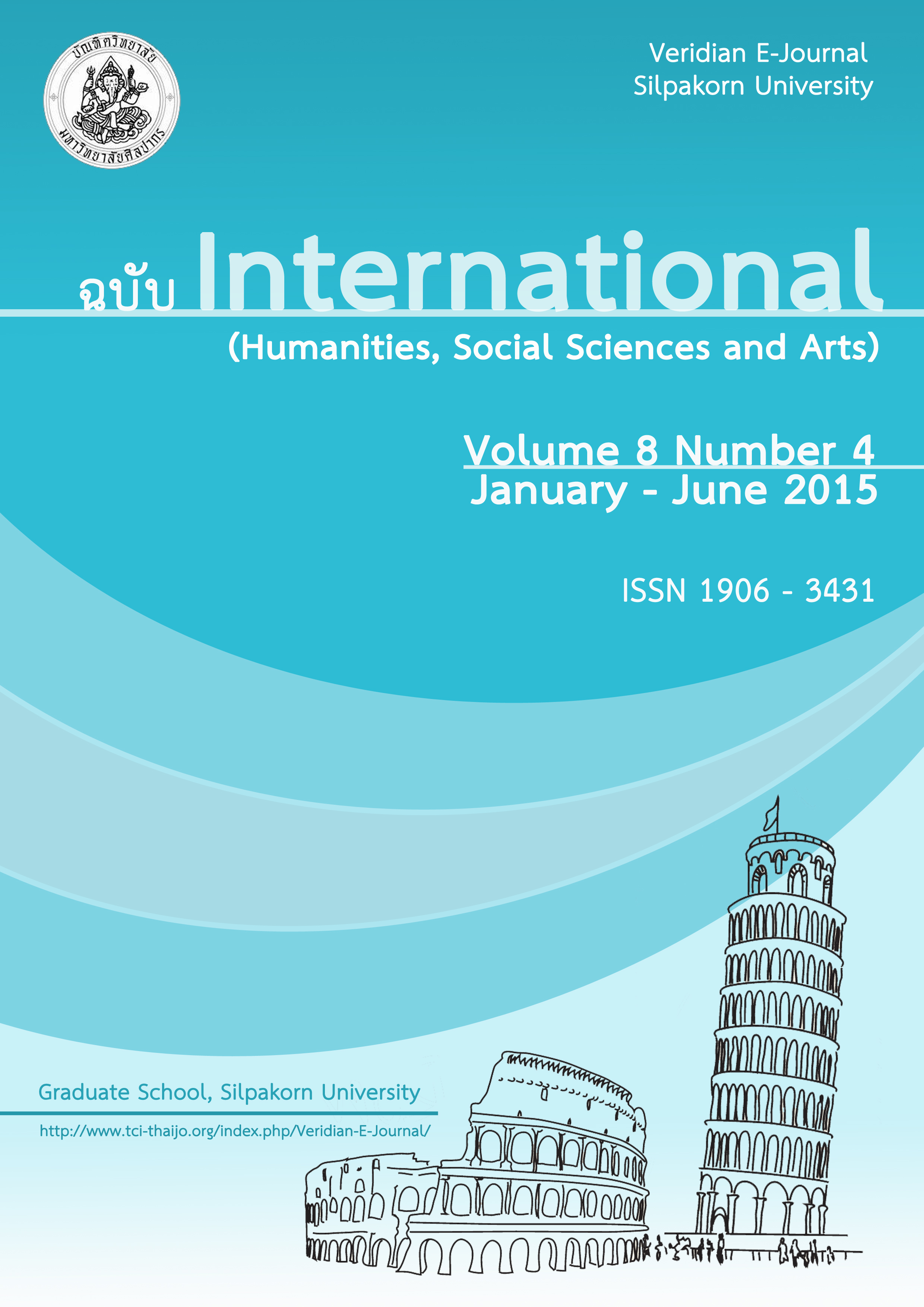Motivation and Grit: Predictors of language learning achievement
Main Article Content
Abstract
Abstract
This present study explored the psychological factors of motivation, anxiety, and grit in learning English as a foreign language. The aims were 1) to examine the relationships between motivation, anxiety, and grit of high and low achievers, and 2) to investigate the predictive validity of motivation, anxiety, and grit on English language achievement. One hundred and eighty Matthayom 6 students of PSU Wittayanusorn School, Songkla, responded to three sets of questionnaires: Learning Motivation Questionnaire, Foreign Language Classroom Anxiety Questionnaire, and Grit Scale. The subjects’ English language GPA was also used to determine their level of achievement. Statistical results revealed the following: 1) among the high achievers, motivation and grit were significantly and positively correlated, while a significant and inverse relationship between anxiety and grit was found; 2) among the low achievers, the correlation between motivation and anxiety was significant and positive; and 3) fear of negative evaluation, test anxiety, and intrinsic motivation were the significantly powerful predictors in English language learning achievement for all learners. It is recommended that foreign language instructors should design a classroom environment which enhances motivation, promotes the personality trait of grit, and reduces anxiety.
Keywords: Language Learning Motivation, Language Learning Anxiety, Grit, English Language Learning Achievement
บทคัดย่อ
งานวิจัยนี้นำเสนอการศึกษาปัจจัยทางด้านแรงจูงใจ ความวิตกกังวล และความเพียร ในการเรียนรู้ภาษาอังกฤษเป็นภาษาต่างประเทศ จุดมุ่งหมายคือ 1) เพื่อศึกษาความสัมพันธ์ระหว่างแรงจูงใจ ความวิตกกังวล และความเพียรของนักเรียนที่มีผลสัมฤทธิ์ทางการเรียนภาษาอังกฤษสูงและต่ำ และ 2) เพื่อศึกษาตัวพยากรณ์ด้านแรงจูงใจ ความวิตกกังวล และความเพียรต่อผลสัมฤทธิ์ทางการเรียนภาษาอังกฤษ กลุ่มเป้าหมายคือนักเรียนชั้นมัธยมศึกษาปีที่ 6 จำนวน 180 คน ของโรงเรียน มอ.วิทยานุสรณ์ จังหวัดสงขลา เครื่องมือที่ใช้ในการวิจัยประกอบด้วย 1) แบบสอบถามแรงจูงใจในการเรียน 2) แบบสอบถามความวิตกกังวลในการเรียนภาษาต่างประเทศ 3) แบบสอบถามความเพียรในการเรียน และ 4) ผลสัมฤทธิ์ทางการเรียนภาษาอังกฤษ ผลการศึกษาพบว่า 1) แรงจูงใจและความเพียรในการเรียนภาษามีความสัมพันธ์กันในเชิงบวกอย่างมีนัยสำคัญ ในขณะที่ความวิตกกังวลและความเพียรมีความสัมพันธ์กันในเชิงลบอย่างมีนัยสำคัญในกลุ่มที่มีผลสัมฤทธิ์ทางการเรียนภาษาอังกฤษสูง 2) ความสัมพันธ์ระหว่างแรงจูงใจและความวิตกกังวลมีความสัมพันธ์กันในเชิงลบอย่างมีนัยสำคัญในกลุ่มที่มีผลสัมฤทธิ์ทางการเรียนภาษาอังกฤษต่ำ และ 3) ความวิตกกังวลในการถูกประเมินผลเชิงลบ ความวิตกกังวลในการสอบ และแรงจูงใจภายใน เป็นตัวแปรที่สามารถพยากรณ์ผลสัมฤทธิ์ทางการเรียนภาษาอังกฤษของกลุ่มตัวอย่างทั้งหมด ข้อแนะนำจากผลการวิจัยคือ อาจารย์ผู้สอนภาษาต่างประเทศควรจัดสภาพแวดล้อมในห้องเรียนเพื่อเพิ่มแรงจูงใจ ส่งเสริมบุคลิกนิสัยด้านความเพียรและลดความวิตกกังวลในตัวผู้เรียน
คำสำคัญ: แรงจูงใจในการเรียนภาษา ความวิตกกังวลในการเรียนภาษา ความเพียร ความสำเร็จในการเรียนภาษา

